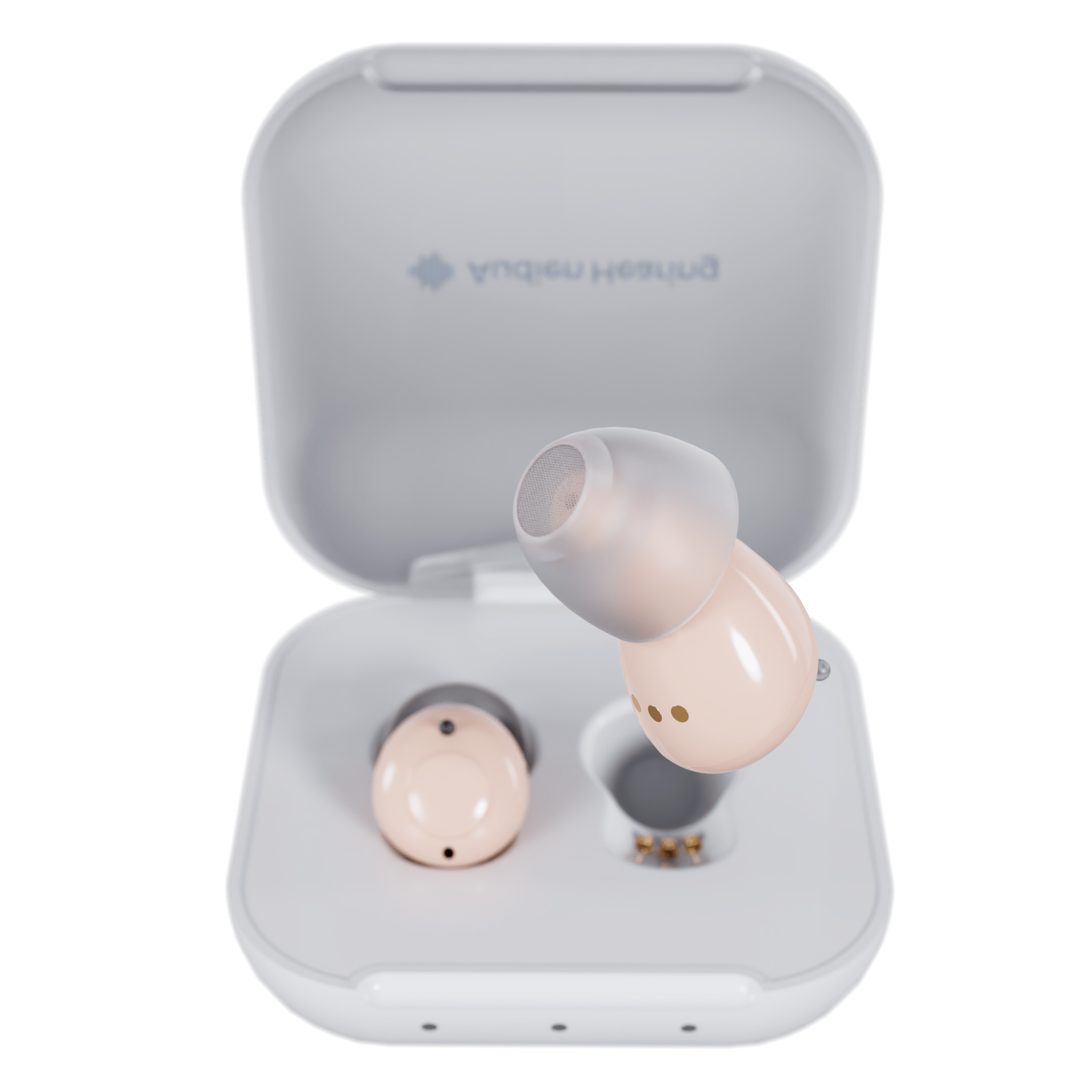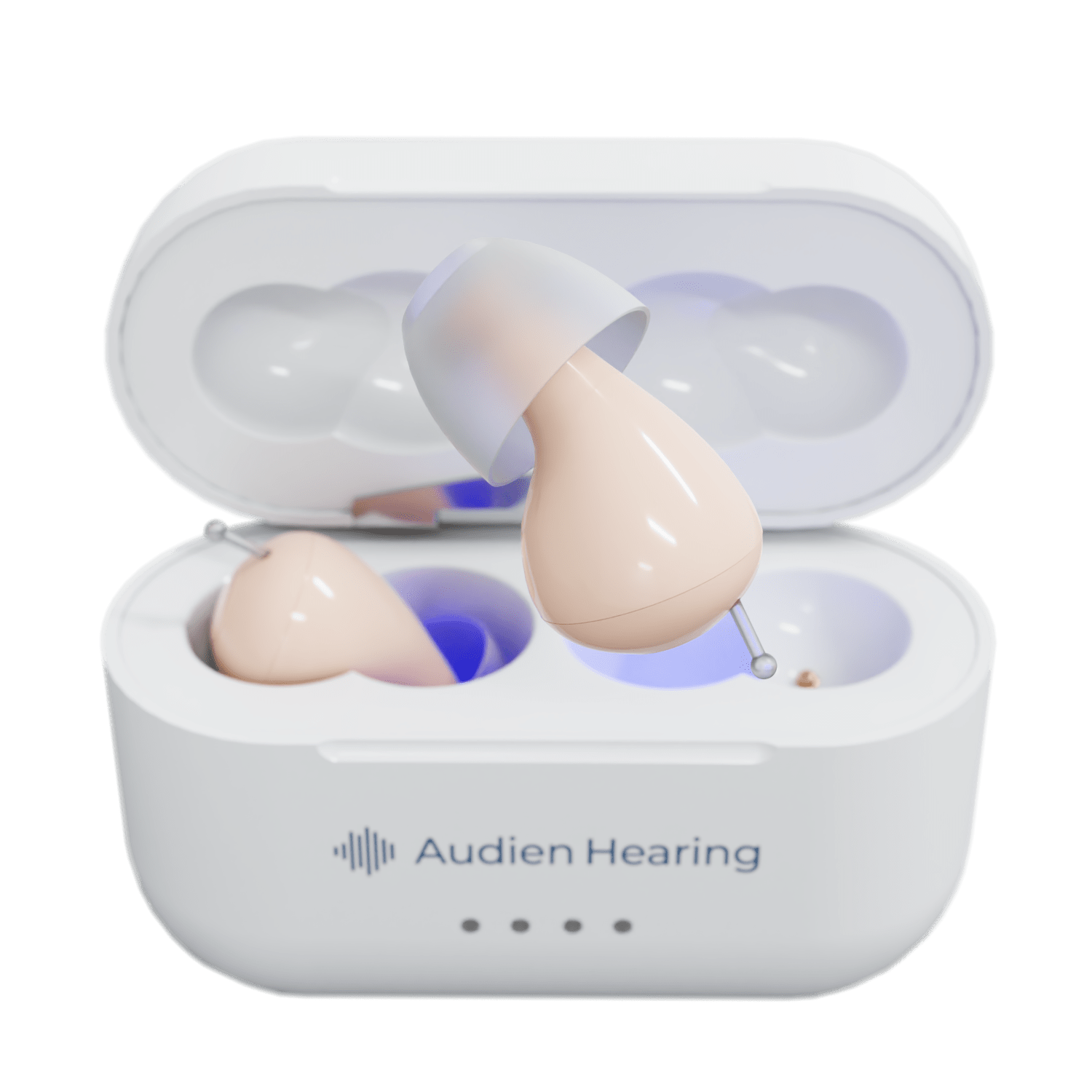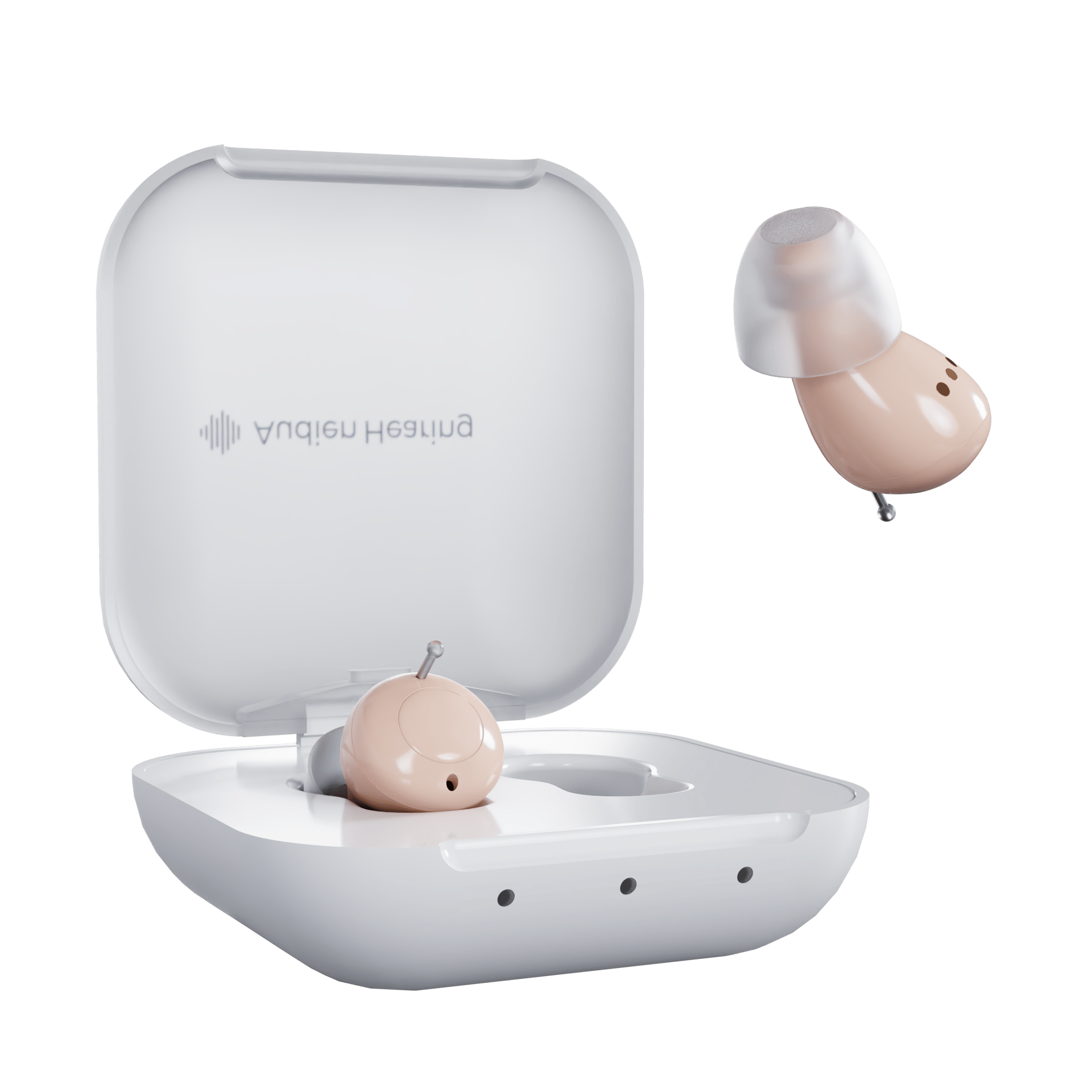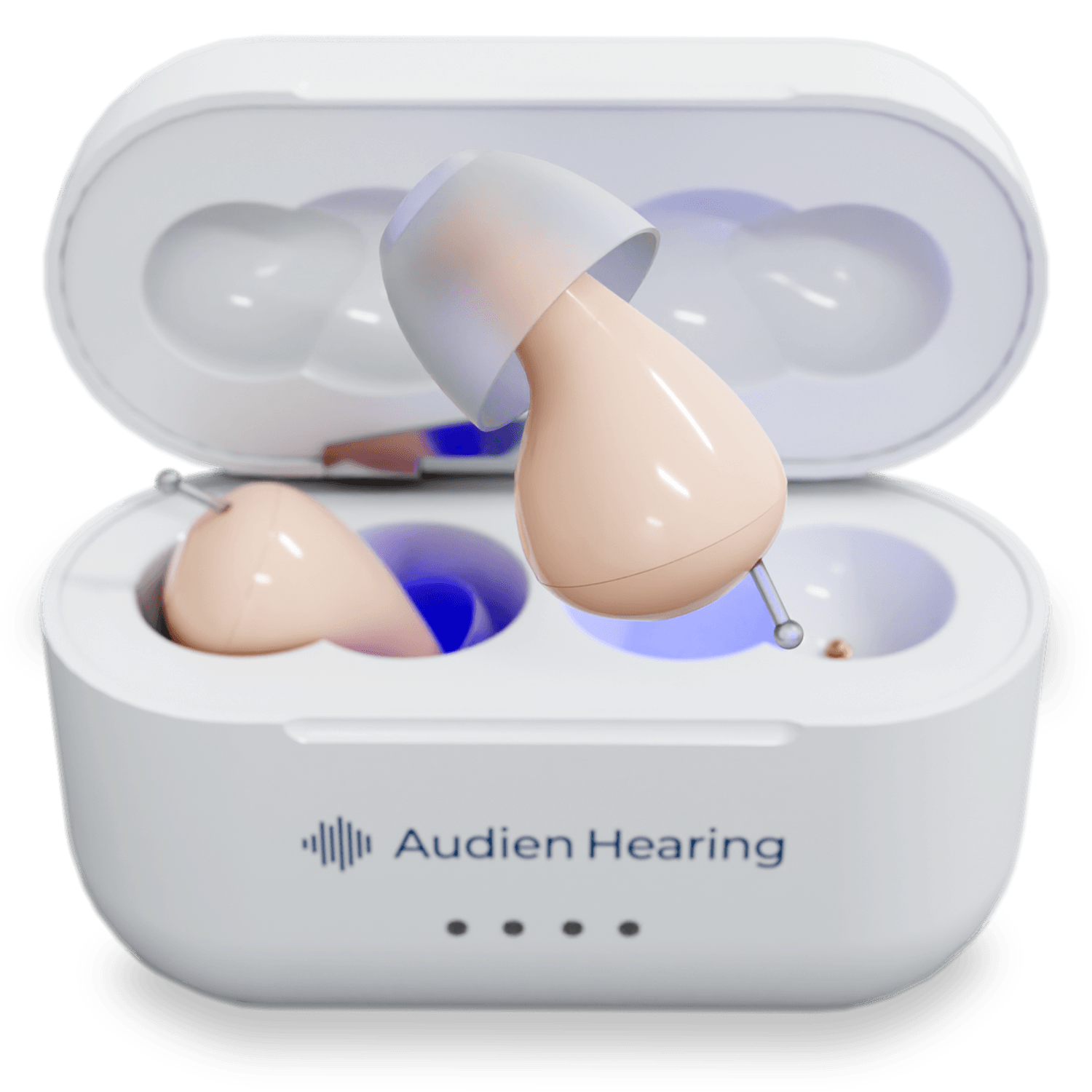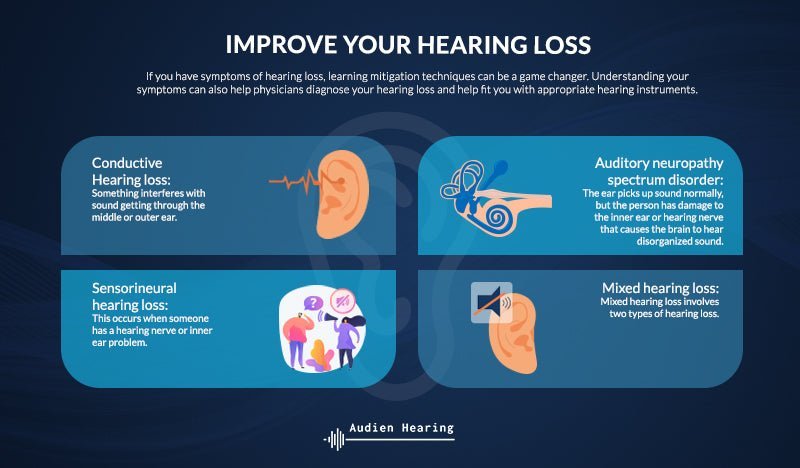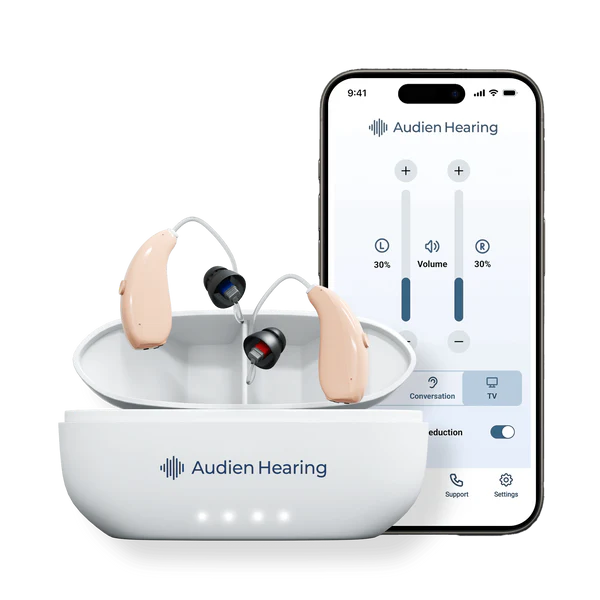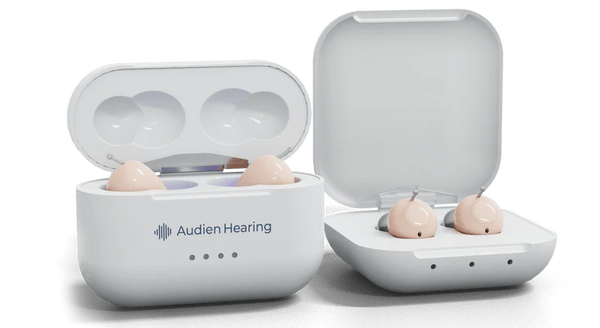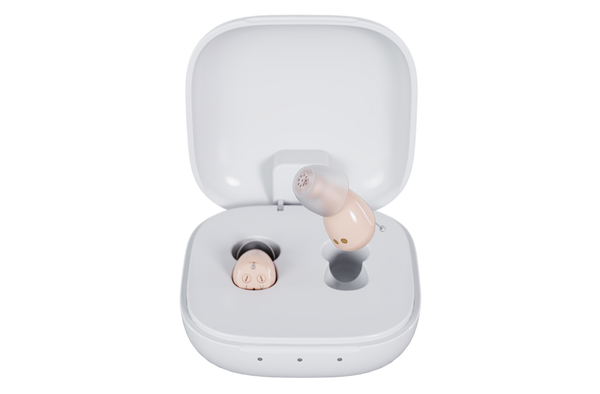Hearing loss can affect nearly every part of daily life. You may find it more difficult to communicate with friends, family, or coworkers. Public places—such as restaurants, stores, or social gatherings—can start to feel overwhelming or isolating. The good news is that today, more solutions than ever exist to help people with hearing loss feel supported, confident, and connected.
In the U.S., approximately 15% of adults experience some degree of hearing loss, and about two to three children out of every 100 are born with a detectable hearing difference. If you’re part of this group, you’re not alone—and you don’t have to manage it without help. Tools like hearing aids can’t reverse hearing loss, but they can significantly improve how you hear and interact with the world around you.
Improve Your Hearing Loss Knowledge
Hearing loss refers to a variety of conditions that reduce your ability to hear sounds clearly. Understanding the type and degree of hearing loss you’re experiencing can help you choose the right path forward. Below are the most common types:
-
Conductive hearing loss occurs when something blocks sound from reaching the inner ear. This may involve the outer or middle ear and is sometimes temporary or medically treatable.
-
Sensorineural hearing loss involves damage to the inner ear (cochlea) or auditory nerve. It’s the most common type of permanent hearing loss, often related to age, noise exposure, or genetics.
-
Auditory neuropathy spectrum disorder (ANSD) occurs when the ear detects sound normally, but the signal becomes disrupted before it reaches the brain, making speech harder to understand.
-
Mixed hearing loss is a combination of both conductive and sensorineural components.
Hearing loss also varies in severity:
-
Mild: Difficulty hearing soft sounds or conversations in background noise
-
Moderate: Missed speech even in quiet environments without visual cues
-
Severe: Most speech is difficult to hear without amplification
-
Profound: Speech is nearly or completely inaudible without significant support
5 Simple Ways To Improve Your Hearing
If you have symptoms of hearing loss, learning mitigation techniques can be a game changer. Understanding your symptoms can also help physicians diagnose your hearing loss and help fit you with appropriate hearing instruments.
1. Find the Right Hearing Aid

Choosing the right hearing aid is one of the most important steps you can take to improve your daily listening experience. While hearing aids don’t cure hearing loss, the right device can significantly enhance your ability to hear conversations, stay engaged in social settings, and reduce the mental effort that often comes with listening.
Finding a good match depends on a few key factors: your ear anatomy, the degree and type of hearing loss, and your lifestyle and listening needs. Some individuals benefit from professional fitting and programming, while others with mild to moderate hearing loss may do well with over-the-counter (OTC) devices that are ready to use out of the box.
If a hearing aid doesn’t fit properly—either physically or functionally—it may cause discomfort or lead to issues like feedback (whistling). That’s why it’s important to choose a model that suits both your ears and your hearing goals.
The Audien Atom Pro is designed for adults with mild to moderate hearing loss who are looking for an affordable, easy-to-use option. It’s compact, discreet, and features built-in feedback cancellation to reduce unwanted whistling. The soft dome helps provide a more comfortable fit for many ear shapes, and the portable charging case makes it convenient to take your hearing aids anywhere.
Whether you’re looking for a simple solution or considering more advanced features, the right hearing aid should support your lifestyle—not complicate it. If you're unsure where to start, think about your typical listening environments, comfort preferences, and whether you prefer the convenience of an OTC device or the customization of a professionally fitted one.
Everyone's hearing journey is different—and the best hearing aid is the one that fits you.
2. Use Communication Strategies to Stay Engaged

Hearing aids can significantly improve access to sound, but they don’t eliminate every listening challenge—especially in noisy environments or group settings. That’s why using practical communication strategies is just as important as wearing amplification.
One helpful approach is to focus on the speaker by maintaining eye contact and reducing background distractions when possible. If you’re in conversation, try to paraphrase mentally as you listen—repeating the main idea in your head can help you stay engaged and improve understanding.
Another technique is to practice with audiobooks and the printed version of the same text. Reading along while you listen can help train your brain to connect sound with words—especially helpful for people adjusting to new hearing aids or working on speech comprehension.
These strategies won’t improve your hearing itself, but they can support better concentration, reduce frustration, and help you stay more confident and involved in conversations.
3. Protect Your Ears from Loud Noises

Noise exposure is one of the most preventable causes of hearing loss. Whether you already wear hearing aids or are trying to preserve your current hearing, protecting your ears from loud environments is critical.
Loud music, power tools, fireworks, concerts, and sporting events can all reach levels that damage the delicate inner ear structures. The best approach is to limit exposure and wear hearing protection—such as foam earplugs or noise-reducing earmuffs—whenever you're in a high-volume setting.
A good rule of thumb for headphone use is the 60/60 rule: listen at no more than 60% of the maximum volume for no more than 60 minutes at a time. Giving your ears regular breaks also helps reduce long-term risk.
Carrying a pair of earplugs with you is a simple way to stay prepared wherever you go.
4. Stay Physically Active

While exercise doesn’t directly improve your hearing, it can benefit your overall hearing health. Physical activity helps support healthy blood flow, which may contribute to better oxygen and nutrient delivery to the inner ear—particularly the cochlea, where sound is processed.
Some studies have shown that people who engage in regular cardiovascular exercise—such as walking, biking, or swimming—may be at lower risk for age-related hearing decline.
Aim for a few walks or light workouts each week to support not just your ears, but your heart, brain, and overall well-being.
5. Keep Your Brain Sharp

Hearing and brain function are closely connected. Even mild hearing loss can increase cognitive load, meaning your brain has to work harder to process sounds and follow conversations.
While no game or app can fix hearing loss, cognitive training and brain exercises may help support memory, attention, and processing skills that are important for listening—especially in challenging environments.
Puzzles, memory games, word searches, and crosswords are a fun way to stay mentally active. Some people also enjoy sound-based or listening games that encourage careful attention to subtle changes in speech or tone.
Keeping your brain stimulated is a smart habit at any age—and it can support the skills that help you make the most of your hearing aids.
Improve Your Hearing With Better Hearing Aids
Strengthening your ability to hear can change your quality of life. You can do simple activities every day to reduce hearing loss or help you focus on speech so you can communicate better with others. Finding the right hearing aids is another vital way to combat hearing loss. Check out our various rechargeable devices to improve your hearing ability.
https://www.cdc.gov/ncbddd/hearingloss/types.html
https://areahearingandspeech.com/2020/03/04/five-ways-to-improve-your-hearing/
https://www.nidcd.nih.gov/health/statistics/quick-statistics-hearing
